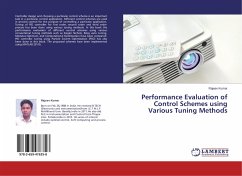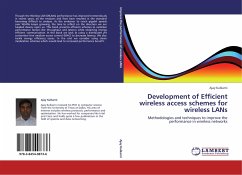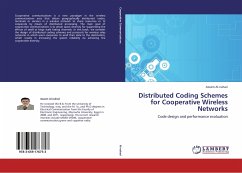
Efficient Admission Control Schemes in Cellular IP Networks
Wireless Handoff/ Handover
Versandkostenfrei!
Versandfertig in 6-10 Tagen
39,99 €
inkl. MwSt.

PAYBACK Punkte
20 °P sammeln!
The rapid growth of real-time multimedia applications over IP networks has made QoS a critical issue. One important factor affecting the QoS in the overall IP networks is the admission control in the fast expanding wireless IP networks. Due to the limitations of wireless bandwidth, wireless IP networks (cellular IP networks in particular) are generally considered to be the bottlenecks of the global IP networks. Admission control is to maintain the QoS level for the services admitted. It determines whether to admit or reject a new call request in the mobile cell based on the availability of the...
The rapid growth of real-time multimedia applications over IP networks has made QoS a critical issue. One important factor affecting the QoS in the overall IP networks is the admission control in the fast expanding wireless IP networks. Due to the limitations of wireless bandwidth, wireless IP networks (cellular IP networks in particular) are generally considered to be the bottlenecks of the global IP networks. Admission control is to maintain the QoS level for the services admitted. It determines whether to admit or reject a new call request in the mobile cell based on the availability of the bandwidth. In the wireless IP networks, apart from new calls, there are handoff (handover) calls which are calls moving from one cell to another. The general admission control includes the new call admission control and handoff call admission control. The desired admission control schemes should have the QoS maintained in specified levels and network resources (i.e. bandwidth in this case) are utilised efficiently. The study conducted in this thesis is on reviewing current admission control schemes and developing new schemes.












